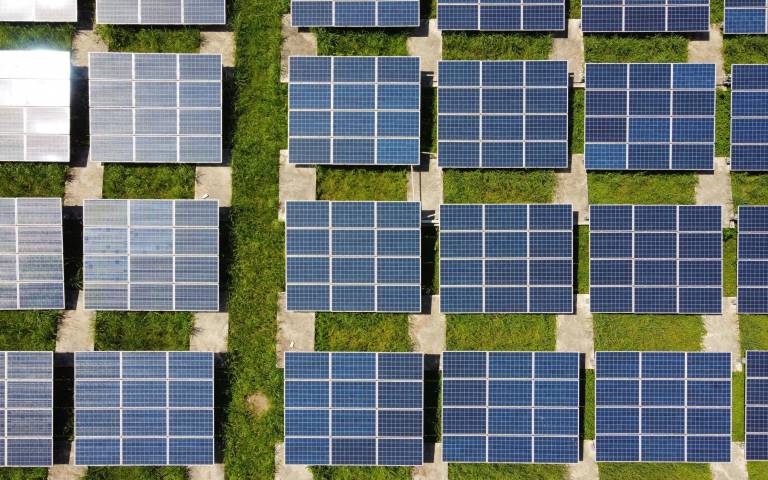Students compete to use AI to help against climate change
21 February 2022
UCL’s Artificial Intelligence Society has launched an international competition, Climate Hack.AI, in which students at 25 universities will compete to use AI to help reduce global carbon emissions.

Over two months, students will improve upon state-of-the-art methods predicting solar energy production in the near future (solar photovoltaic nowcasting) based on satellite images showing cloud cover. Better predictions will allow grid operators to minimise the use of standby power from non-renewable sources, reducing carbon emissions.
The competition is co-hosted by student societies at 25 universities including UCL, Harvard, MIT, Stanford, Oxford and Cambridge. It is a collaboration with Open Climate Fix, non-profit organisation that has prepared about 100 gigabytes of earth satellite imagery – data which students will use to train machine learning algorithms.
Open Climate Fix estimates that better solar photovoltaic forecasting could save up to 100 kilotonnes per year in the UK alone, and by 2030, reduce global carbon emissions by roughly 100 million tonnes per year.
The winning team will be awarded £30,000 and their model could be deployed, via Open Climate Fix, by the UK’s National Grid Electricity System Operator to produce more accurate solar photovoltaic output forecasts.
The competition, which is open now, will culminate in an in-person final in which teams of three from each university will compete in two locations in London and New York from 24 to 26 March 2022.
A prize pool of £50,000 will be distributed among the first-, second- and third-place teams and their university societies. The competition has been sponsored by global innovation hub, Ennovate, and Newcross Healthcare Solutions.
Jamie Weigold (President of the UCL Artificial Intelligence Society) said: “Climate change is the single greatest threat to humanity today. How we, as a race, respond to it will define not only our generation but the survival and livelihood of all generations to come.
“Climate Hack.AI and the problem of increasing the quality of solar photovoltaic power production forecasts more generally is one of many steps that will be required to tackle this threat. We are honoured to be hosting students from such a prestigious collection of universities whose student communities are participating in the competition, united together in the fight against climate change.”
Jack Kelly (Co-Founder and Chief Executive Officer at Open Climate Fix), who is a UCL graduate, said, “Open Climate Fix is committed to addressing climate change in a completely open fashion in order to accelerate impact. Open Climate Fix uses our connection to industry to present real-world problems with researchers. Climate Hack.AI is a fantastic opportunity to get some smart, inventive people on this important challenge, and we can in turn help take these innovations to practical use.”
Organisers say that Climate Hack.AI is an opportunity to convey the benefits and potential of artificial intelligence to the world. They intend to run the competition annually, where each year broadens the scope of participation and challenge from the last.
The satellite imagery is from EUMETSAT, the European operational satellite agency for monitoring weather, climate and the environment from space.
Links
Image
- Taipei Energy Hill solar park from above. Photo by Anders J on Unsplash. Unsplash licence
Media contact
Mark Greaves
T: +44 (0)7990 675947
E: m.greaves [at] ucl.ac.uk
 Close
Close

